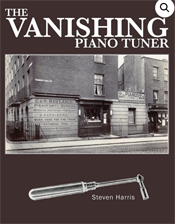Since being established in 1986, Osbond and Tutt French Polishers have provided a high quality French Polishing service to all clients both domestic and commercial.
Whether your an interior designer working on a project at a large Oxfordshire estate or an individual that has decided to get their coffee table brought back to its former glory. At our professional workshop based in Wandsworth, London we can make that happen.
Osbond and Tutt are well established in the French polishers industry for outstanding quality, having conducted several celebrity, government, overseas and high calibre projects since we established 28 years ago.
French Polishers
The intimate nature of the family run French polishing business ensures projects are completed on time, and with all techniques and processes carried out by hand there is minimal disturbance to our customers.
With over two centuries of experience present at Osbond and Tutt French Polishers we can ensure that every French Polishing dilemma commercial or residential can be rectified to the highest of standards ensuring maximum customer satisfaction every time.
Health and Safety
In order to assure that every project undertaken is completely safe and without any risk of injury to anybody present, all Osbond and Tutt French polishers are made aware of health and safety guidelines on every site.
Many of Osbond and Tutt’s operatives attend frequent training courses in health and safety, including CSCS, PASMA, Asbestos and PPE training. This ensures to ourselves and our clients that we are fully competent and safe at what we do.
Osbond and Tutt frequently converse with a third party environmental and health and safety company to ensure all relevant documents are up to date including method statements, risk assessment and COSSH sheets.
Osbond and Tutt have public liability of £5M in case of the extreme rarity of any accidental damage occurring on-site by our French polishers. All Osbond and Tutt’s team are CSCS qualified and are provided with all relevant PPE. All products and materials used by Osbond and Tutt pass environmental regulation and are disposed in a recycling a plant.


